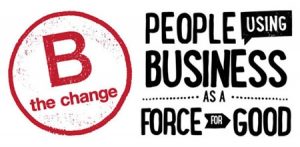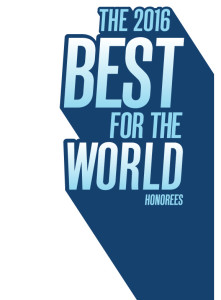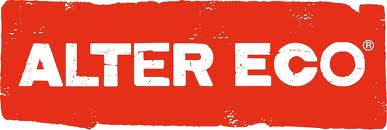The protection of our democracy and the livability of our planet and its climate are dependent on having a more well-informed populace. It is increasingly important for people to be able to identify and combat disinformation, propaganda, smears, lies, dogma, unfounded conspiracy theories, and “fake news” from unreliable sources, in an era when online bots and “trolls” are being weaponized from outside and inside our country to spread misinformation by infiltrating social media groups and political campaigns, to wage personal attacks on candidates and sow discord, division, doubt, paranoia, hatred, chaos, and even violence. Many well-intentioned people have been unwittingly spreading lies because they were duped by cleverly concealed information warfare campaigns (often started by their adversaries or hostile regimes).
“Falsehood will fly from Maine to Georgia, while truth is pulling her boots on.”
– C.H. Spurgeon
 To be well informed, you need to feed yourself a healthy, balanced diet of nutritious, fact-based, high-quality information. Avoid ingesting (or sharing) junk. Avoid all tabloids and sensationalist, entertainment-focused media; also avoid watching most cable news (especially FOX “News,” which has essentially become a fact-free outrage machine and propaganda arm of the GOP), panels of shouting pundits, and all Sinclair Broadcast Group-owned news stations. Avoid sharing articles that may not be accurate, or information that comes from highly biased or hyper-partisan publications/sources or from unknown or potentially illegitimate sources. If you’re in doubt about the accuracy of a claim, look it up on the key fact-checking sites (e.g., Factcheck.org, Politifact.com) and do a Google search to see what several reliable sources say about it.
To be well informed, you need to feed yourself a healthy, balanced diet of nutritious, fact-based, high-quality information. Avoid ingesting (or sharing) junk. Avoid all tabloids and sensationalist, entertainment-focused media; also avoid watching most cable news (especially FOX “News,” which has essentially become a fact-free outrage machine and propaganda arm of the GOP), panels of shouting pundits, and all Sinclair Broadcast Group-owned news stations. Avoid sharing articles that may not be accurate, or information that comes from highly biased or hyper-partisan publications/sources or from unknown or potentially illegitimate sources. If you’re in doubt about the accuracy of a claim, look it up on the key fact-checking sites (e.g., Factcheck.org, Politifact.com) and do a Google search to see what several reliable sources say about it.
Most importantly, seek out (and share) news from the most truth-seeking, investigative, and reputable media outlets. Of course, some journalists and reports are better than others, and even strong publications will have flawed pieces or flawed fact-checking sometimes. Readers still need to be able to engage in critical thinking, and to be able to distinguish between factual news reporting and opinion pieces (or PR pieces) from commentators, columnists, or pundits. Educators should help teach students these essential skills.
Here are a few media outlets that have regularly produced sound, informative reporting and are widely considered to be reliable, fair, trusted sources of news (though of course no publication, journalist, or human can or will ever be 100% bias-free or mistake-free):
- The Guardian (US)
- The Guardian (International)
- Courier
- ProPublica: Journalism in the Public Interest
- Washington Post
- Center for Public Integrity (CPI)
- Reveal (from the Center for Investigative Reporting)
- Frontline
- Vox
- PBS News Hour
- PRI (Public Radio International)
- NPR (and local public radio stations)
- AP News
- C-SPAN
- CBS / NBC News
Some additional publications that are also well-regarded and often feature informative articles (but that have sometimes been prone to more criticism or may require a more skeptical eye on certain pieces) include:
The Atlantic, the Los Angeles Times, The New Yorker, Mother Jones, The New York Times, The Economist, Slate, The New Republic, Salon, Bloomberg, Politico, and The Nation.
Note: This is, of course, not an exhaustive or even comprehensive list of media worth paying attention to. If there are other trusted publications that you regularly read, feel free to mention them in the Comments.
Also be sure to check out the following:
Environment, Climate, Energy, and Science Media
- Society of Environmental Journalists newsfeed
- Scientific American
- Living on Earth
- Mongabay
- Livable Planet
- E&E News (including Greenwire)
- Ensia
- Grist
- Science

- Nature magazine
- High Country News
- Earth Island Journal
- onEarth
- Solutions
- EcoWatch
- InsideClimate News
- DeSmog
- Climate Progress
- New Scientist
- The Ecologist
- Mother Earth News
- Yes! Magazine
Also see: End Climate Silence (Twitter page)
Fact-checking Sites
- FactCheck.org
- Politifact [state-specific editions are available for certain states]
- Snopes
Media Integrity/Watchdog Groups
Press Freedom Advocates
- Free Press
- Committee to Protect Journalists (CPJ)
- Reporters Committee for Freedom of the Press (RCFP)
- Global Investigative Journalism Network (GIJN)
Boosting Local Press
Critical Thinking Resources
Please follow our Twitter list that includes the media and organizations listed above.
It’s important that those of us who can pay something for real journalism actually do so, so that real news outlets (including local/regional newspapers and local public radio stations) can survive and not be entirely driven out by profit- and ratings-driven, sensationalist media (and lie-spreading, non-journalistic websites). Choose at least one reputable news source to subscribe to as a paid subscriber—ideally at least one local and one national or international publication—to be informed, to show your support, and to help keep them afloat. We can’t expect competent, professional journalists and writers to work for free, and we don’t want news media to be reliant solely on their major advertisers, who might expect them to alter (or censor) their content to serve the advertisers’ special interests.

 A
A 

 We have published numerous posts that provide listings of various type of non-profit* groups (related to specific topics and issues), so we thought we’d provide an index of all of them to make them easy to find. Many of the groups that we’ve mentioned in our posts are based in the United States, but some are international organizations and a few are focused on other countries:
We have published numerous posts that provide listings of various type of non-profit* groups (related to specific topics and issues), so we thought we’d provide an index of all of them to make them easy to find. Many of the groups that we’ve mentioned in our posts are based in the United States, but some are international organizations and a few are focused on other countries:





